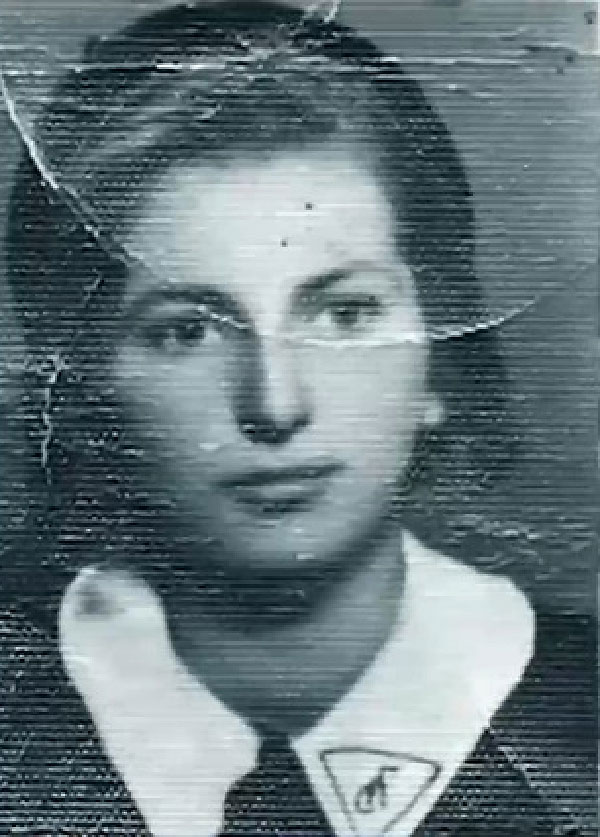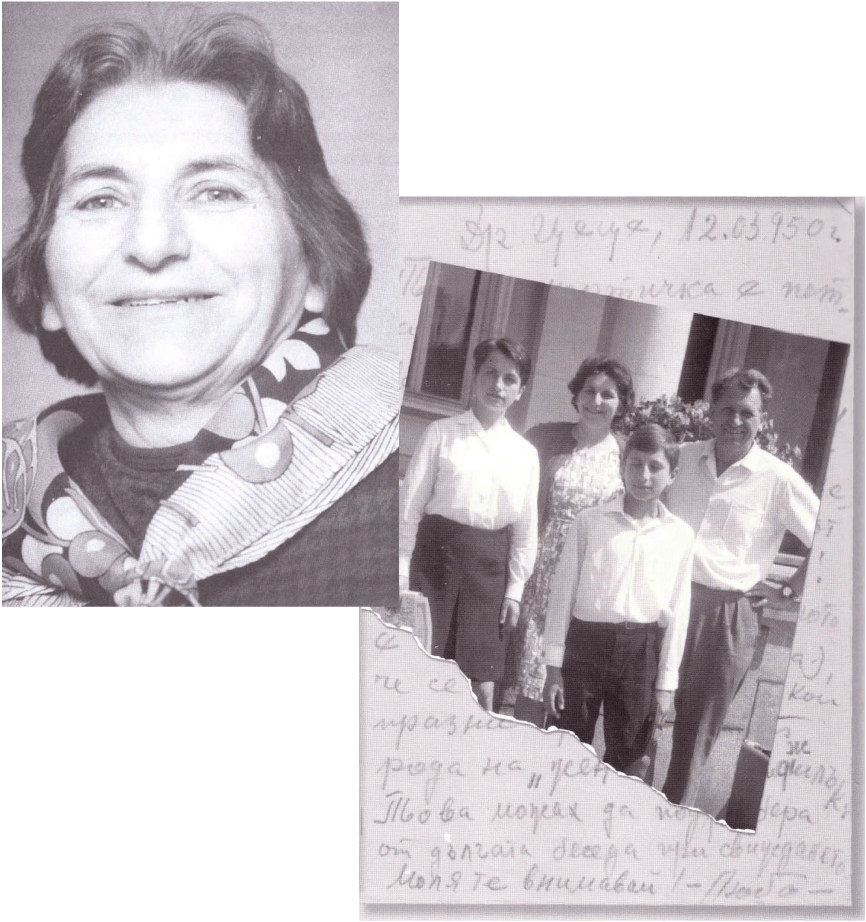4 years and 5 months in camps
Offense: anarchist

When I reached the moment when I decided that the worst that can happen is to die, then I felt free in my own way.
Tsvetana was born on March 20, 1928, in the village of Leskovets, Pernik, in the family of artisans. She attended the primary school in her home village and then the middle school in the village of Batanovtsi.
During 1942-1946 she studied at the high school for girls in Pernik and after graduation she applied to study Agronomy at Sofia University, but she was not admitted as she didn’t have the approval of the communist authorities. It was during that period that Tsvetana became interested in the ideas of anarchism. After the authorities denied her entry into university, Tsvetana, her future husband Lyubomir Dzhermanov and her friend Maria Doganova decided to organize a meeting of young anarchists from Southwestern Bulgaria near the Gigin monastery. Participating groups from Pernik, Radomir and Sofia were stopped by the police.
When I reached the moment when I decided that the worst that can happen is to die, then I felt free in my own way.
This event became the reason for Tsvetana’s arrest on December 16, 1948, during an action against anarchists in Bulgaria. Without a trial and a sentence, Tsvetana was sent to the forced labor camp in the village of Bosna, near Silistra. She remained there for three years from January 1949 until December 1951, when she was moved to the women’s section of the Belene camp – Shturcheto camp. Tsvetana remained there until April 20, 1952, when she was released following the death of Stalin. According to the State Security archive, Tsvetana signed a declaration for cooperation while in the Belene camp, however, there is no documental evidence that she ever provided any information.
A few months before she was arrested in 1948, Tsvetana married Lyubomir Dzhermanov (born in 1925, also an anarchist). The two of them, along with their children, were resettled by the communist authorities multiple times and had to frequently change their jobs.
In the years following her release from the camps, Tsvetana and her husband found work in the mines, which was one of few employment opportunities open for them. Since work in the mines weas unattractive and work was hard. The communist authorities always had difficulties in ensuring a steady work force for the mining sector. In 1957 Tsvetana completed a vocational course at the Mining Technical School in Pernik.
In later years Tsvetana was engaged in different administrative roles. After the fall of the regime in 1989, she was an active participant in the efforts to preserve the memory of victims of the communist regime and she often talked in public about her time in the Bosna and Belene labor camps. Her memoirs, Memories from the camps, are available from Farago Publishing House.
Tsvetana passed away on February 19, 2024, shortly before her 96th birthday.
You can learn more about Tsvetana and her memories of the communist regime and the Belene camp by scrolling up and asking Tsvetana a question.
-------
The testimonies published here present survivors’ personal memories and accounts and reflect their individual experiences. They do not substitute professional historical research and may contain inaccuracies.
Sources: Dzhermanova, Tsvetana, Memories from the Camps; comdos.bg; State Archives Agency - Pernik; Bulgarian National Television Open Files series; witness testimonies; Histories from Belene photostory available at https://www.dnevnik.bg/bigpicture/2015/05/30/2542627_istorii_ot_belene/, In Focus with Lora Krumova available at: https://www.youtube.com/watch?v=jXyqd3d6jL8
We challenged them when they introduced the slogan “Establishing a dictatorship of the proletariat”. We said that through dictatorship one cannot build communism.

We challenged them when they introduced the slogan “Establishing a dictatorship of the proletariat”. We said that through dictatorship one cannot build communism.

4 years and 4 months in labor camps
Offense: anarchist
9 months under arrest and in a camp
Offense: son of a provincial governor in the Kingdom of Bulgaria
42 days in the Sunny Beach camp near Lovech
Offense: "hooligan", son of a member of the opposition
9 months under arrest and in a camp
Offense: an attempt to escape from Bulgaria
2.5 years under arrest and in a camp
Offense: participant in the anti-communist resistance
3 years under arrest, in a camp and prisons Offense: Agrarian, member of the opposition
3 years and 1 month under arrest and in and political prison
Offense: participant in the anti-communist resistance
In 1961, Zheko was sentenced to death for resistance to the communist authorities. Subsequently, his sentence was changed to lengthy imprisonment.
In 1964, Zheko Stoyanov received an amnesty and was released from the Stara Zagora prison. In order to earn his living, he did hard manual labor, working as a porter, a painter on construction sites, and a miner. For twenty-two years he worked in underground mines.
After the democratic transition of 1989, Zheko Stoyanov entered politics and in 1997 he was elected a member of parliament for the United Democratic Forces. At the age of sixty, he completed a degree in economics.
2 years and 8 months under arrest and in political prison
Offense: dissemination of anti-communist leaflets
After 1958, Alfred was granted the right to travel to Bulgaria, where he spent his summer holidays. There he got to know the new reality of the country and met other like-minded individuals who were dissatisfied with the regime and with whom, in 1968, he distributed printed leaflets against the Communist Party.
Arrested on August 28, 1968, for the distribution of these leaflets, Alfred was sentenced as a spy to fifteen years in prison, of which he served three in the Stara Zagora prison. Following diplomatic pressure, he was released on April 30, 1971, and left Bulgaria. He later returned to illegally take his beloved out of the country, succeeding through a complex and risky plan.
After settling in France, Alfred actively collaborated with groups fighting for human rights in Bulgaria and helped illegally take other political prisoners out of the country. He currently lives in Sofia.
Four years in camps and in forced resettlement
Offence: disagreement with the change of Turkish names to Bulgarian




